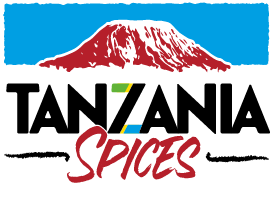Scope of the Tanzania Spices label
The Tanzania Spices label covers a range of factors. These include the variety of spice crops, geography, production systems, stakeholder participation, and type of products.
Range of spices
Tanzania produces over 30 important spice crops that, in the long term, will be covered by the Tanzania Spices label. These include clove, pepper, ginger, cinnamon, cardamom, vanilla, chillies, onion, coriander, garlic and lemongrass.
In the short term, the label focuses on the five crops with the highest potential for export and production improvement. These are clove, pepper, ginger, cinnamon and cardamom.
Read more about Tanzania’s top 5 spices.
Geography
Tanzania’s major spices production areas are in the Zanzibar and Pemba islands, and the Eastern Arc Mountains, which extend from the north to the south on the mainland.
The Tanzania Spices label covers all production areas in Tanzania, from the mainland to Zanzibar.
In Zanzibar, the label is used in addition to, or as an alternative option, to the existing Zanzibar Exotic Originals label. Spices imported from outside the country are not eligible.
Conventional and organic spices
Spices production in Tanzania is predominantly from smallholder farmers in rural areas. Farming methods are largely conventional, with a low level of mechanization and input use.
Spice farming is often considered organic by default, yet only a very small segment (<5%) is officially certified organic. The Tanzania Spices label includes both conventional and certified organic spices.
Want to buy ISO-certified Tanzanian spices?
Standards of the Tanzania Spices label
National and international standards of quality
National and international standards for the Tanzania Spices label are based on the existing Tanzania Standards (TZS) specifications, administered by the Tanzania Bureau of Standards (TBS).
TBS is the national institution responsible for quality control of all products. It is registered with the International Organization for Standardization (ISO).
ISO certification adds another layer of authentication to the Tanzania Spices label locally and internationally.
Production standards
Good Agricultural Practices (GAP) are important in developing efficient production systems, providing clean and safe products, and supporting access to high-value markets.
Tanzanian spices industry partners recognize the importance of GAP in developing efficient production systems, providing clean and safe spices, and supporting access to high-value markets. They support the principles of good governance, social and environmental responsibility.
In practice, the industry is committed to improving the working conditions, contributing to the economic and social wellbeing of the communities in which they are based, and implementing good environmental practices.
All stakeholders of the label support the principles of good governance, social and environmental responsibility, traceability, corporate social responsibility and sustainability.
The Private Sector Working Group and label governance bodies reserve the right to refuse or withdraw usage of the label to any firm that disregards the principles.
Logo design and tagline
The label logo is a simple 2D design. The words “Tanzania Spices” are in the colours of the Tanzanian flag on the letter Z, and an icon of Mt Kilimanjaro is in the background. The tagline that accompanies the logo is the phrase “Mark of origin and quality”.
“The Tanzania Spices label is an exercise in branding. The aim of branding is to promote a product so that it can be identified in the market and be distinguished from other similar products. Tanzanian spices are different from other spices produced in other countries, so the label will help consumers to recognise this.
”






